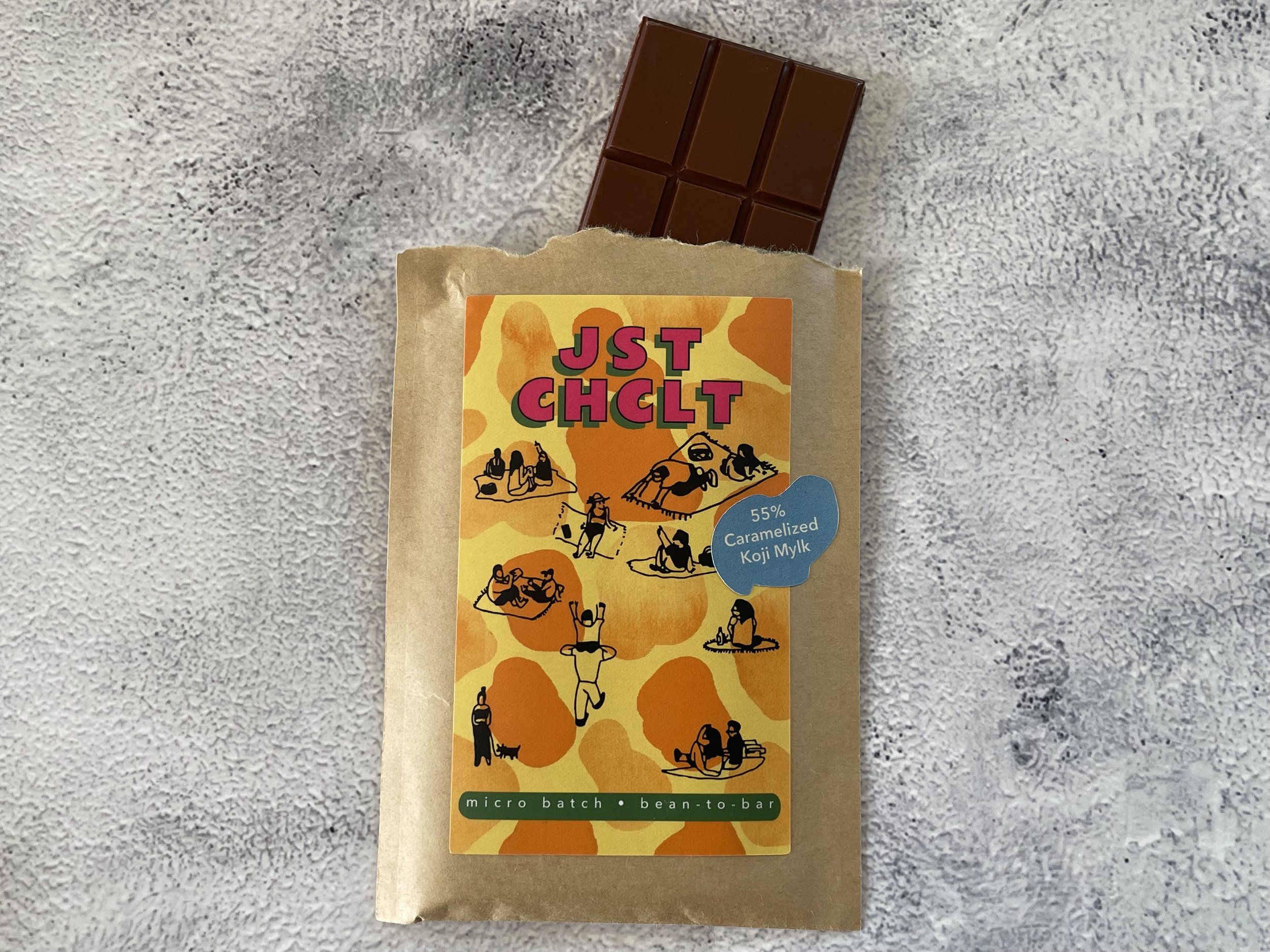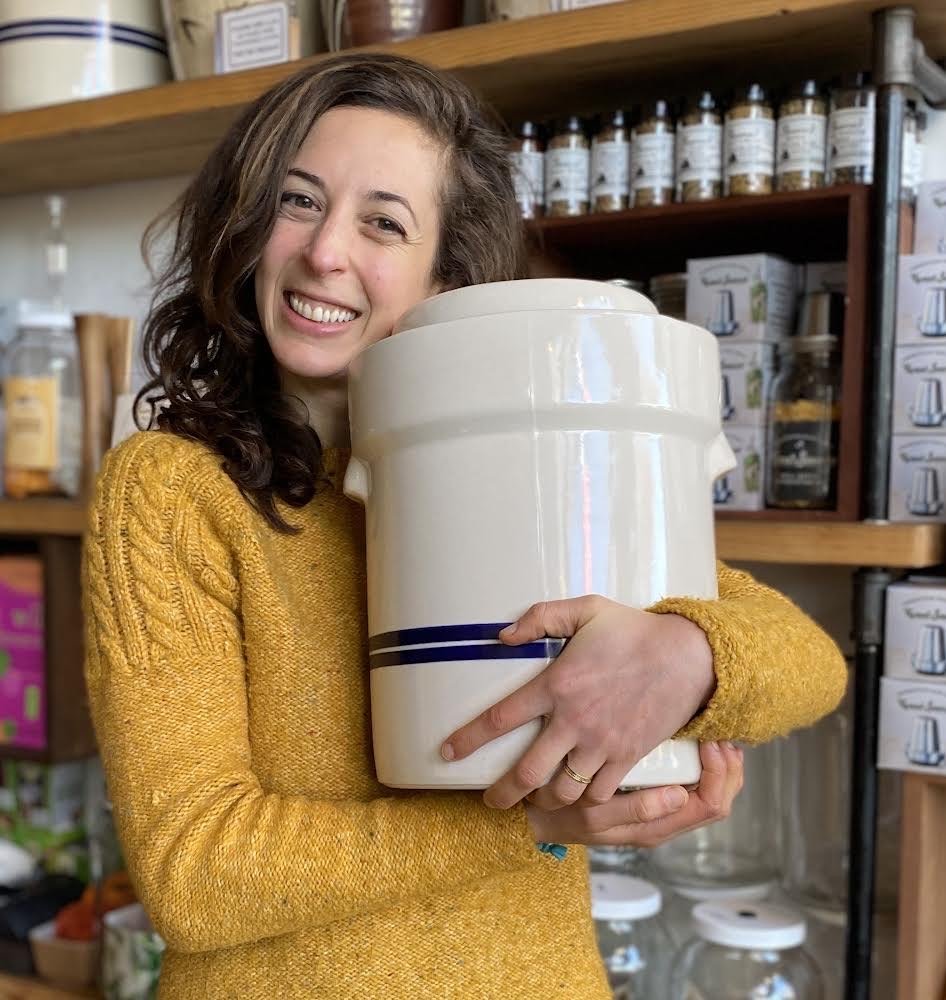How J Street Chocolate Uses Fermentation to Create Delicious Bars & Fight Food Waste
The self-taught chocolate maker Julia Street launched a micro-batch, vegan bean-to-bar chocolate company called J Street Chocolates in San Francisco in 2021. She has a larger background in operations in and out of tech companies, and most recently worked at Preserved, a fermentation shop in Oakland.
Fermented Ingredients & Ethically Sourced Cacao
Now, her love of fermentation extends even beyond fermenting the cacao beans that become her bars — she also utilizes fermented ingredients such as sourdough bread (for a 74% Sourdough Crunch bar) and koji (as the “milk” for a 55% Caramelized Koji Mylk Chocolate bar and a 66% Miso Chocolate bar). Her beans are ethically sourced from Meridian Cacao from Tanzania, India, Trinidad, Madagascar and Ecuador.
After one year in the chocolate business, Street is looking forward to setting new goals to grow her company. Her commitment to fighting food waste is unwavering and a central part of her ethos.
Fighting Food Waste
Says Street, “Food waste contributes to the ongoing climate crisis and anything I can do as a producer to help reduce waste instead of creating more waste is extremely important,” she notes. “I can also use it as an opportunity to educate the consumer that it doesn’t have to be waste, and we can reduce our footprint in delicious ways. While my impact is small at this stage, incorporating it at the beginning only gives me the opportunity to keep expanding it.
“Also,” she adds, “fermentation is a way to prevent food waste because it’s a form of preservation, extending food’s life. This is one of the reasons why I’ve always been into fermentation (and because of the amazing flavors that come out during transformation), which is why I started experimenting with pairing it with my chocolate. As I was developing some of my flavors, I also thought about local businesses in my neighborhood and known byproducts of their production, like spent grain from brewing beer.”
In addition to spent grains Street has used other surprising ingredients including upcycled beets used to make kvass, preserved lemons, local black olives and fermented green jalapeno and serrano chiles.
Street’s bars are currently carried at select shops and bars in San Francisco and Oakland and locals can currently order pickup or delivery of bars as well. She has plans to establish more of a presence in the Bay Area and beyond in her second year.
Looking Ahead
“This first year has really been a lot of navigating new waters and figuring things out as I go along, so I’m hoping for the next year I’ll be able to grow with more predictability,” she says. “I plan to increase my production by buying more machinery that can help me handle larger capacities and do it faster. I would like to continue to get into more retail stores, partner with more local businesses to upcycle food and reduce waste and maybe even re-think some of my packaging.”
Street is as enthusiastic about small bean-to-bar producers as she is about fermentation and preventing food waste. Her current recommendations for other small-batch, bean-to-bar chocolate makers to try include Mexico’s Cuna de Piedra, SOMA in Toronto, Fossa in Singapore (featured in a story on Chocolate and Sense of Place) and Portland’s Foxglove — she’s enjoyed everything she’s tasted from these companies. “There is so much great craft chocolate out there and so much I haven’t tried!” she says.




